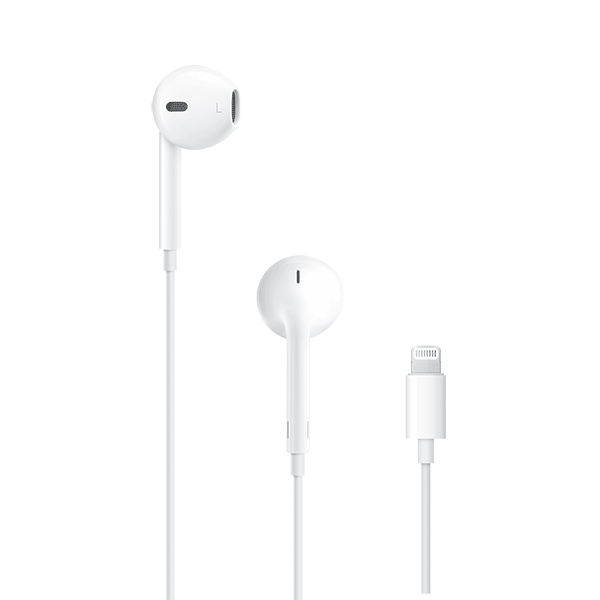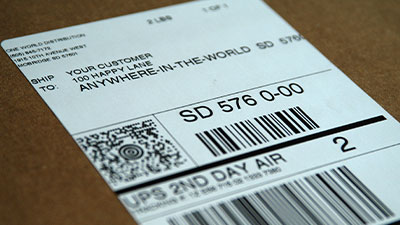Ecommerce Personalization has revolutionized the way businesses interact with their customers. By providing personalized experiences, you can differentiate yourself from competitors and deliver superior online shopping experiences that increase conversions, average order values, and customer retention.
Consumers have come to expect tailored and relevant interactions when shopping online, so brands leveraging a one-fits-all shopping experience are quickly falling behind. Ecommerce personalization allows businesses to use customer data to create personalized experiences at every touchpoint. By making each interaction feel unique and tailored to the individual, you can create a sense of exclusivity and make your customers feel valued, ultimately leading to increased engagement and improved customer satisfaction.
Personalized experiences go beyond simply addressing customers by name or recommending products based on their past purchases. They involve understanding each customer’s preferences, behaviors, and needs to provide them with highly relevant and meaningful interactions. These could include personalized product recommendations, tailored content, customized shopping interfaces, or new personalized-to-consumer (P2C) fulfillment services.
Explore the ins and outs of ecommerce personalization. We’ll uncover different strategies, best practices, and successful examples that showcase the effectiveness of delivering tailored shopping experiences for each customer.
Ecommerce personalization refers to using customer data to deliver unique and relevant experiences to individual shoppers. It involves tailoring various aspects of the online shopping journey, such as product recommendations, content, and user interfaces, based on each customer’s preferences and behaviors.
You can enhance overall customer experiences by providing relevant information and suggestions that align with individual preferences. Ecommerce personalization can also encompass product personalization, such as:
Incorporating personalization for your ecommerce brand has proven to be one of the most effective strategies for improving customer loyalty, increasing average order values (AOVs), and boosting overall return on investment (ROI). Two of the most common types of ecommerce personalization are product personalization and website personalization.
Product personalization is when a business allows customers to modify its product with specialized inscriptions and designs individualized to them.
Many people are familiar with how brick-and-mortar stores handle product personalization. For example, you might have come across novelty keychains with names like “John” or “Maria” or high-end jewelers who offer custom engravings on their products. It’s easy to understand why product personalization is so effective: it allows customers to create products specialized just for them.
Given its success offline, it’s no wonder that product personalization has gained traction in the ecommerce space. More than 49% of consumers want personalization options, and the demand is only growing. Ecommerce product personalization usually comes in the form of the following:
Website personalization involves using customer data to create a uniquely tailored experience for each visitor. It involves analyzing customer behavior on your site to deliver a more personalized and engaging shopping journey. Common personalized shopping experiences include:
83%
of consumers are willing to share their data to create a more personalized experience
If you want to drastically improve your ecommerce business, integrating personalization tools and leveraging your customer data is the best place to start. Today’s online shoppers not only want personalized shopping experiences but will avoid ecommerce stores that don’t resonate with their unique needs. 83% of consumers are willing to share their data to create a more personalized experience, and 71% of customers feel frustrated when their shopping experience is impersonal.
If you want to satisfy more customers and deliver superior online journeys that translate to higher customer retention and revenue, leverage ecommerce personalization. Some of the top benefits of personalization in ecommerce include:
Online shopping can quickly become overwhelming, with endless options at every click. That’s where personalized ecommerce shines – it’s not just another choice; it’s your choice. When your business embraces personalization, it captures attention and halts the endless scroll, setting you apart in a crowded marketplace.
There’s a huge opportunity to capitalize on personalization trends. Salesforce surveyed 14,300 consumers and business buyers worldwide and found that 66% of customers expect companies to understand their unique needs and expectations. However, only 32% of retail executive respondents say their organizations have the full ability to turn data into personalized prices, offers, and products in real-time across channels and touchpoints.
Integrating personalization tools for your business or product customization software will help you build tangible connections with your audience and allow them to make one-of-a-kind products or find what they want from your business without the extra effort.
Personalized-to-consumer (P2C) fulfillment is a revolutionary new offering for ecommerce brands. Traditionally, ecommerce personalization has used customer data to tailor the shopping experience for each individual. With P2C fulfillment, you can allow customers to create unique, custom products, adding a personal touch to every order. By integrating P2C software into your online platform, customers can easily customize products in just a few simple steps.
Over 49%
of consumers want product personalization options
Today, the most popular form of ecommerce personalization is product personalization. More than 49% of consumers want product personalization options, and demand is only growing. Offering product personalization is currently the best way to improve customer loyalty while decreasing cart abandonment.
Web personalization not only enhances the user experience but also significantly boosts revenue. Companies prioritizing personalization see a 40% increase in earnings from these efforts compared to their competitors. Although implementing website personalization may involve some additional investment of time and resources, the returns far outweigh the initial costs.
If the data over the last ten years tells us anything, product personalization is more than a trend; it’s the future of ecommerce.
OWD positions itself as a leader in personalized fulfillment services by offering innovative solutions that seamlessly integrate with existing ecommerce operations. Key features include:
Turn fulfillment into a revenue-generating opportunity rather than an overhead expense.
An ecommerce personalization platform centralizes data and delivers cohesive, personalized experiences across channels.
Key criteria when choosing a platform:
Nike’s successfully integrated product personalization with their “Nike by You” service, allowing customers to:
Allowing shoppers to customize their sneakers improves customer satisfaction and provides Nike with insightful data, enhancing their understanding of consumer preferences and boosting sales of popular products. Product personalization also allows companies to craft marketing campaigns that appeal directly to individual customer preferences, significantly enhancing the effectiveness of their promotional activities.
Netflix and Amazon have successfully enhanced customer engagement and satisfaction by introducing personalized greetings and recommendations. Personalized touches greatly influence customer behavior, with 76% of customers stating improved brand consideration.
Both companies also use advanced algorithms to deliver personalized content recommendations that have helped retain users and increase engagement. By leveraging data on user preferences and viewing habits, these platforms offer tailored recommendations that enrich the user experience. This level of personalization has become an essential tool for improved customer loyalty, keeping users invested and driving the success of leaders like Netflix and Amazon in the competitive realms of streaming and ecommerce.
By integrating our P2C plugin and services on your website, your customers can customize your products with unique engravings and embroidery to make genuinely one-of-a-kind items and gifts. Our P2C software and services are ideal for ecommerce brands in a variety of verticals, including
Offering product personalization and fulfillment has never been easier. By partnering with us, we can handle storing, personalizing, and shipping your products straight to your customers!
Stay ahead by tracking these top ecommerce personalization trends:
Insight: Brands using AI for personalization see 25% more engagement compared to rule-based personalization (Salesforce).
Skip the hassle of acquiring specialized equipment for product customization.
OWD extends its Direct-to-Consumer (D2C) services to include personalized-to-consumer (P2C) fulfillment, effortlessly integrating personalization into your offerings. Using our personalization plugin, your customers can personalize products with laser engravings, embroidery, or direct-to-object prints. They can also include custom greeting cards for specialized gifts for friends and family. This service allows for personalization across diverse materials, including wood, paper, glass, metals, plastics, leather, rubber, and fabrics.
Our software effortlessly connects with your online storefront so you can begin offering P2C fulfillment without expensive development costs. We are a comprehensive 3PL fulfillment center ready to help you deliver superior fulfillment services for your B2B or D2C business. Best of all, we offer call center services for our fulfillment partners with American agents ready to handle your customer queries through email, chats, and calls.
Contact our team, and we will help you cover all your fulfillment needs!
Ecommerce personalization has become essential for retailers due to its ability to create tailored experiences for customers at scale, leading to increased customer satisfaction, loyalty, and ultimately, higher sales and revenue.
There are various dimensions of ecommerce personalization, including product recommendations, dynamic pricing strategies, customer segmentation techniques, and creating personalized onsite experiences through dynamic content.
Retailers can generate relevant product recommendations by leveraging diverse customer data signals, social proofing, and collaborative filtering to enhance the accuracy of recommendation algorithms.
Retailers can leverage geolocation/IP address segmentation and customer cohorts for precise audience targeting in marketing initiatives. It's important to consider the ethical implications of data-driven segmentation and maintain customer trust.
Dynamic content blocks play a crucial role in delivering tailored messaging and promotions across different touchpoints on websites. Best practices for optimizing dynamic content delivery include ensuring it does not compromise page load speed or user experience.
Emerging trends in ecommerce personalization include voice commerce, machine learning, and augmented reality, which have the potential to revolutionize the way brands engage with customers on a personalized level.
Ecommerce personalization enhances customer retention by providing a more engaging and relevant shopping experience. Personalized interactions, from tailored emails to customized product pages, encourage repeat visits and brand loyalty.
Successful ecommerce personalization requires a range of tools including data analytics platforms, CRM systems, and advanced marketing automation software. These tools help in collecting and analyzing customer data, enabling personalized marketing strategies and content.
Privacy concerns are significant in ecommerce personalization. Retailers must ensure they comply with data protection regulations such as GDPR and maintain transparency with customers about how their data is used.
Yes, small businesses can significantly benefit from ecommerce personalization. Even with limited resources, small retailers can implement basic personalization tactics, such as personalized emails or targeted promotions, to enhance customer experiences and compete with larger brands.
Key metrics to track include conversion rate, average order value, customer retention rates, and customer lifetime value. These metrics help businesses assess the effectiveness of personalization efforts and guide future strategies.
Integrating personalization into mobile platforms involves optimizing mobile apps and websites to offer personalized content, push notifications, and mobile-specific deals based on user behavior and preferences. Ensuring a seamless mobile experience is crucial as more consumers shop on their devices.
Customer personalization helps brands connect with shoppers on a 1:1 level. It shows you understand their needs and preferences, which builds trust and loyalty.

Fulfillment costs are based on three criteria: size, weight and delivery time.
OWD offers five service levels: economy (7-10 days); Standard (5-7 days), 2-Day, Overnight and International.

Example Weight: 1 ounce
Fulfillment | Postage | Total |
|---|---|---|
$1.75 | $3.64 | $5.39 |
Lorem ipsum dolor sit amet, consectetur adipiscing elit. Ut elit tellus, luctus nec ullamcorper mattis, pulvinar dapibus leo.
Lorem ipsum dolor sit amet, consectetur adipiscing elit. Ut elit tellus, luctus nec ullamcorper mattis, pulvinar dapibus leo.
Lorem ipsum dolor sit amet, consectetur adipiscing elit. Ut elit tellus, luctus nec ullamcorper mattis, pulvinar dapibus leo.
Lorem ipsum dolor sit amet, consectetur adipiscing elit. Ut elit tellus, luctus nec ullamcorper mattis, pulvinar dapibus leo.
Lorem ipsum dolor sit amet, consectetur adipiscing elit. Ut elit tellus, luctus nec ullamcorper mattis, pulvinar dapibus leo.
DDU means Delivery Duty Unpaid – where the buyer pays for all of the import fees at delivery.
Unexpected import fees give buyers sticker shock – not good. When they refuse to pay, you’ve lost a sale and must pay to return your product, or abandon it.
DDU is an old idea whose time has passed. For these reasons and more, OWD doesn’t recommend DDU for e-com sellers.
DDP is an acronym for Delivery Duty Paid. DDP means that the seller pays for all the duties and import fees.
With DDP, your customers won’t be surprised with unexpected customs charges – good!
With OWD’s landed cost calculator, your foreign customers will know exactly what their various VAT, customers and duties will cost. No unhappy surprises.
For large-scale operations needing a full solution in Europe, there’s OWD Europe, based in Amsterdam.

OWD handles phone calls, e-mails and web chat eighteen hours a day from our own state-of-the-art facility.
We’ll handle your inbound sales and customer service contacts.
You get career agents who speak American English and know how to sell.
$99 gets you 200 calls, e-mails or chats handled every week.
You get your own phone number and custom e-mail.
We do a lot more. Call for details.

The Voice of Your Brand
OWD’s all-inclusive Returns service provides simplicity and high-end customer service. OWD includes a pre-printed return label as part of your packing slip. Your customer need only drop it in the mail.
What’s included: packaging slip with return label, QC inspection, re-bag, re-tag and return to stock. What’s excluded: postage cost, poly bags and any special packaging.
